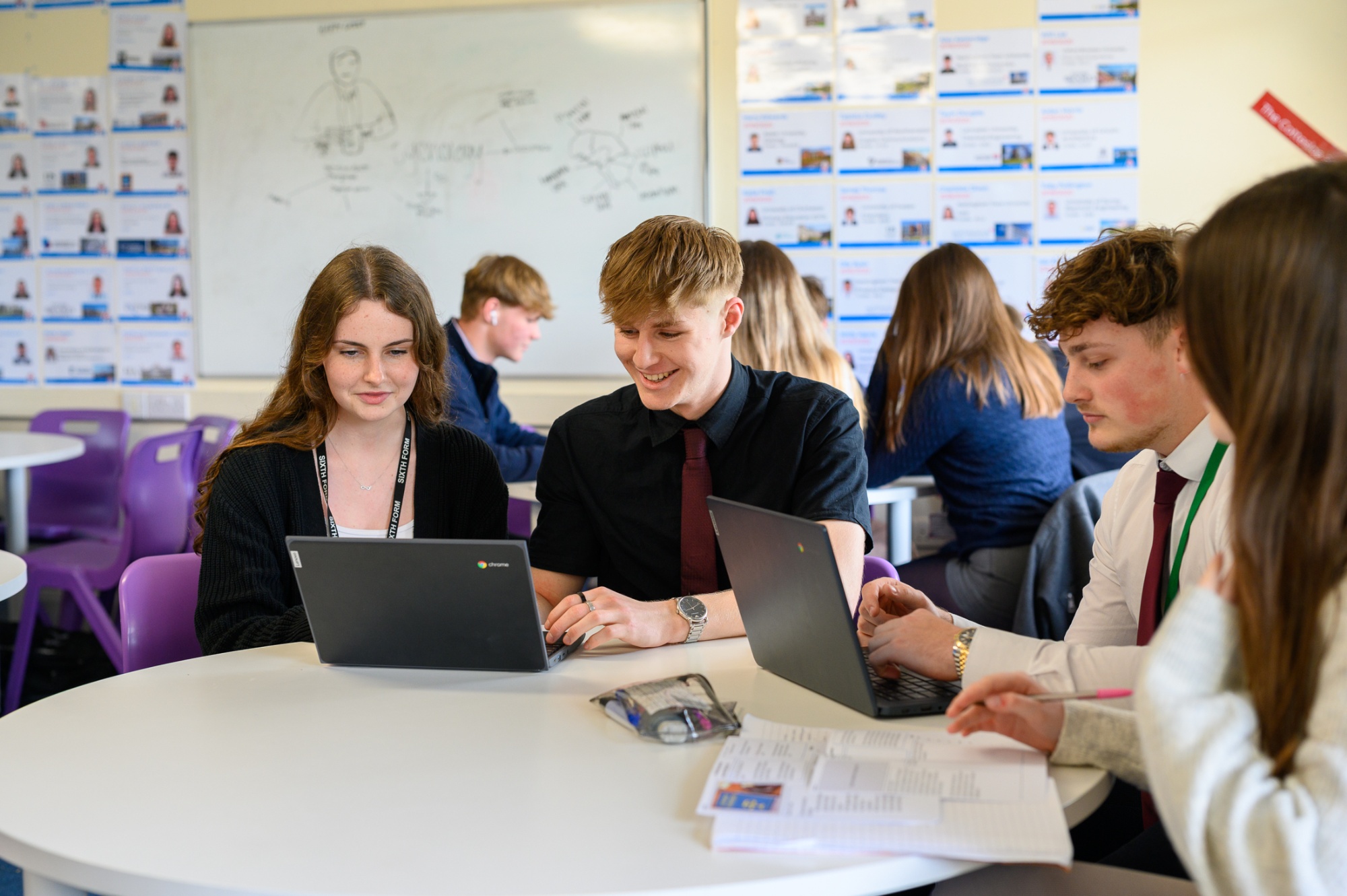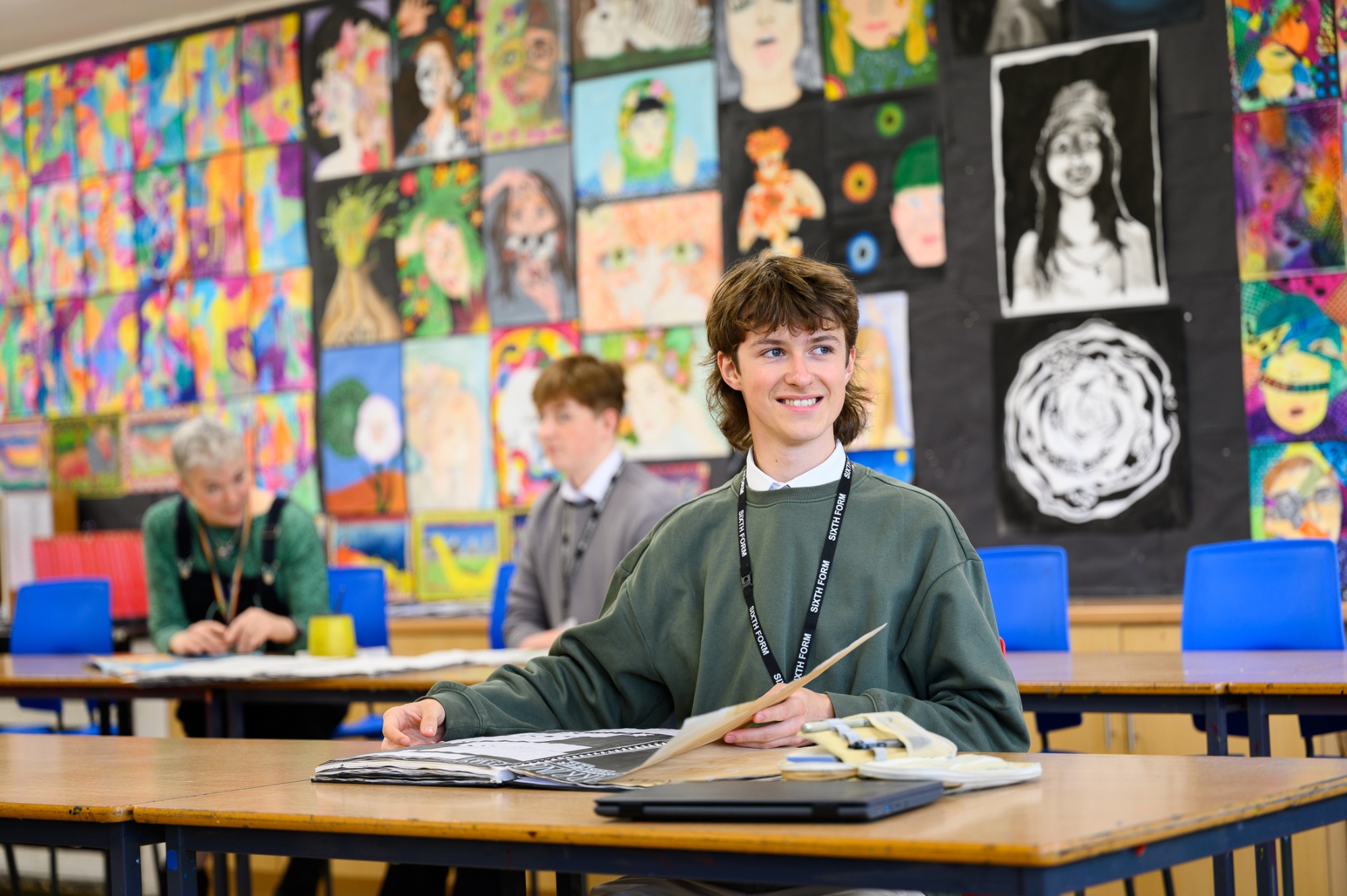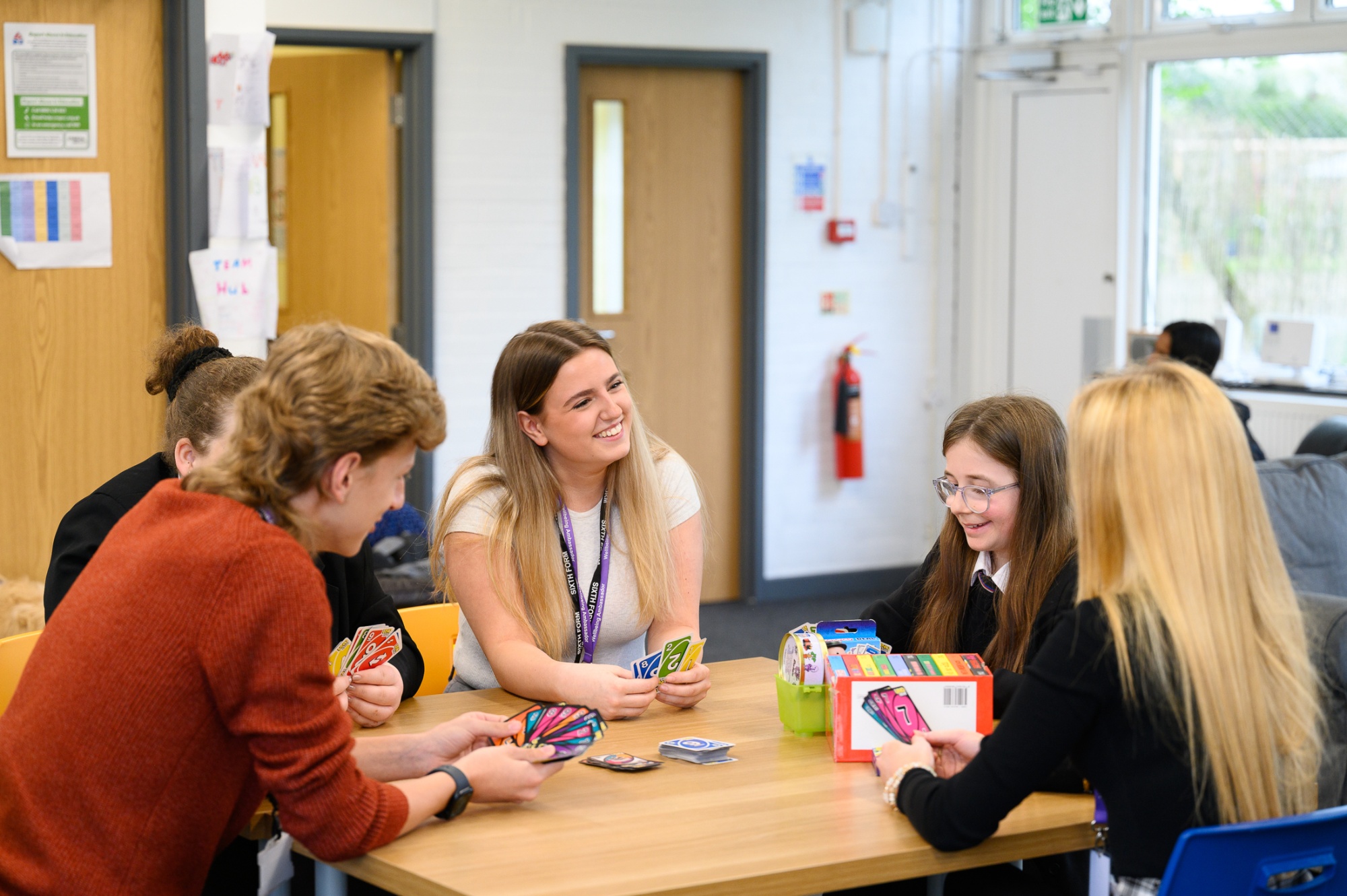Sport
Examination Board | Pearson
Specification Code | 603/0458/3
Subject Content
A broad basis of study for the sports sector. This qualification is designed to support progression to higher education. Students will cover the following units:
Year 12 - Unit 1: Anatomy and Physiology and Unit 6: Sports Psychology
Year 13 - Unit 2: Fitness Training and Programming for Health, Sport and Wellbeing and Unit 3: Professional Development in the Sports Industry.
Assessment Details
- Unit 1: Anatomy and Physiology (Externally assessed, written examination 1hr 30 mins) Unit 6: Sports Psychology (Internally assessed, via set assignments)
- Unit 2: Fitness Training and Programming for Health, Sport and Well-being (Externally assessed, Part A case study preparation, Part B supervised assessment.)
- Unit 3: Professional Development in the Sports Industry. (Internally assessed, via set assignments)
To be successful, students will need to be able to:
- Develop their time management and organisational skills to allow for further reading, exam preparation and assignment completion.
- Respond to a variety of short, long and extended answer questions in exam conditions.
- Plan a response to a case study/scenario in order to outline an appropriate course of action to improve fitness and wellbeing.
- Apply their knowledge to respond to a variety of assignment briefs.
Additional Equipment Recommended
- A course folder to organise unit resources.
What can I do to support my child at home?
- Ask students to explain what they have covered in class as this can help ‘internalise’ information.
- Ensure homework on Google Classroom is completed.
- Provide support in organising time to work on assignments.
- Support work at home on exam practice using sample assessments and past papers. Mark responses and discuss improvements using the mark scheme.
Recommended Resources for the Course
Websites
-
Exam board specification and sample assessments - BTEC National Extended Certificate in Sport
Books
- Student Book: BTEC National Sport Students Book ISBN: 9781292134000
- Revision Guide: Revise BTEC National Sport Units 1 and 2 Revision Guide ISBN: 9781292230535
Teaching Staff Contact Details
Year 12 and 13 Team
Miss S Felton sfelton@cottesloe.bucks.sch.uk
Mr A Curtis acurtis@cottesloe.bucks.sch.uk
Sports Studies Curriculum Intent
Intent
Our curriculum is designed to provide opportunities for all students to excel, succeed and instil a passion for physical activity and sport. Our curriculum focuses on developing the whole student by nurturing talent and skill sets, thinking and decision-making skills and enhancing the character of all of our students. By experiencing a broad and rich range of activities, students have the knowledge, competence and enthusiasm to make informed decisions regarding their lifestyle choices, particularly lifelong participation in physical activity.
Ethos
We aim to develop students’ skills, confidence, and ultimately, interest in physical activity and sport so they are inspired and enthused to participate in and out of school. The experience they gain with us, we believe, should be the catalyst for lifelong participation in sports, cementing the habits of a lifetime. Our department fosters a positive learning environment where enjoyment breeds success. Through increased competency and expertise in a range of sporting techniques, this success leads to excellence and fulfilment for all. The building of character through personal development and the fostering of healthy relationships is a cornerstone of our ethos. Through failure and success, students will win and lose, and learn the values of fairness, resilience, sportsmanship and respect.
Careers in Physical Education
A career in Physical Education offers a wide range of opportunities for those passionate about sport and fitness. Here are some potential career paths:
- Physical Education Teacher: Teach physical education in schools, colleges, or universities, inspiring the next generation of athletes and active individuals.
- Sports Coach: Train and develop athletes of all ages and abilities, specialising in a specific sport or multiple disciplines.
- Fitness Instructor: Design and lead fitness classes, personal training sessions, or group exercise programs in gyms, health clubs, or community centres.
- Sports Therapist: Provide rehabilitation, injury prevention, and performance enhancement services to athletes.
- Sports Scientist: Conduct research into the physiological, psychological, and biomechanical aspects of sport and exercise.
- Sports Journalist: Report on sporting events, write articles, and produce sports broadcasts for newspapers, magazines, television, and online media.
- Sports Administrator: Manage sports organisations, clubs, or events, overseeing finances, marketing, and operations.
- Sports Development Officer: Promote and develop sport within a community, working with local organisations and schools to increase participation.






